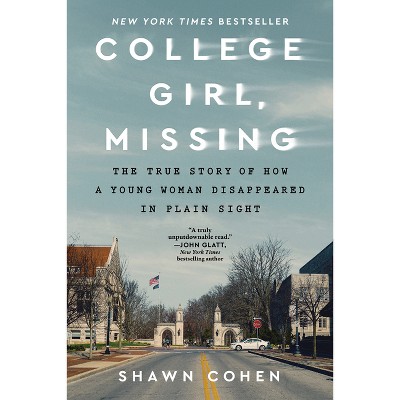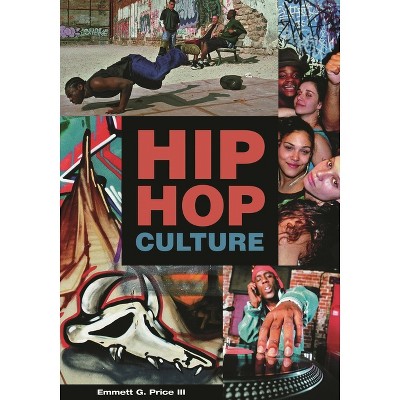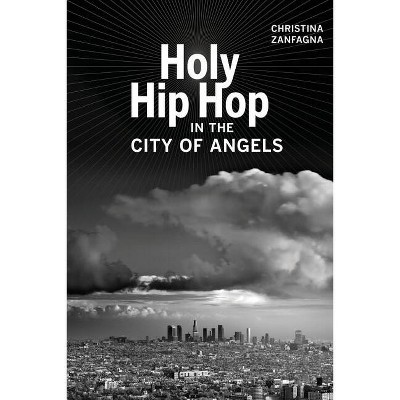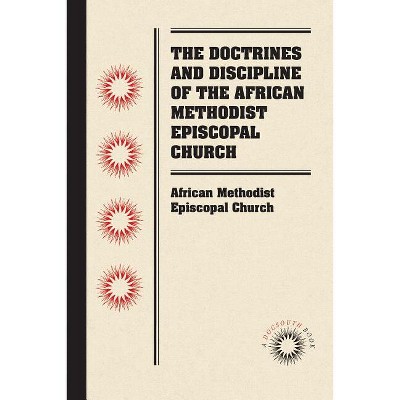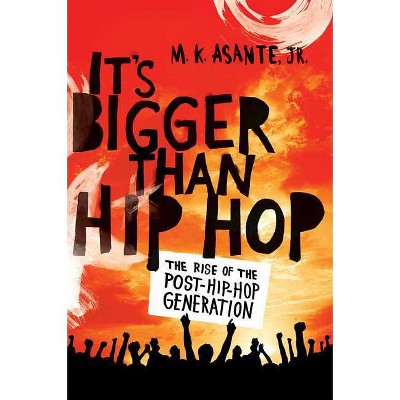Black Church and Hip Hop Culture - (African American Cultural Theory and Heritage) by Emmett G Price (Hardcover)

$103.00 when purchased online
Target Online store #3991
About this item
Highlights
- In this collection of provocative essays, leading thinkers, preachers, and scholars from around the country challenge both the Black church and the hip-hop generation to realize their shared responsibilities to one another and to the greater society.
- About the Author: Emmett G. Price III is chair of the Department of African American Studies and associate professor of Music and African American Studies at Northeastern University.
- 228 Pages
- Social Science, Ethnic Studies
- Series Name: African American Cultural Theory and Heritage
Description
About the Book
In this collection of provocative essays, leading thinkers, preachers, and scholars from around the country challenge both the Black church and the hip-hop generation to realize their shared responsibilities to one another and to the greater society.Book Synopsis
In this collection of provocative essays, leading thinkers, preachers, and scholars from around the country challenge both the Black church and the hip-hop generation to realize their shared responsibilities to one another and to the greater society.From the Back Cover
Throughout the 1950s and 1960s, the Black Church stood as the stronghold of the Black Community, fighting for equality and economic self-sufficiency and challenging its body to be self-determined and self-aware. Hip Hop Culture grew from disenfranchised urban youth who felt that they had no support system or resources. Impassioned with the same urgent desires for survival and hope that their parents and grandparents had carried, these youth forged their way from the bottom of America's belly one rhyme at a time. For many young people, Hip Hop Culture is a supplement, or even an alternative, to the weekly dose of Sunday-morning faith. In this collection of provocative essays, leading thinkers, preachers, and scholars from around the country confront both the Black Church and the Hip Hop Generation to realize their shared responsibilities to one another and the greater society. Arranged into three sections, this volume addresses key issues in the debate between two of the most significant institutions of Black Culture. The first part, "From Civil Rights to Hip Hop," explores the transition from one generation to another through the transmission--or lack thereof--of legacy and heritage. Part II, "Hip Hop Culture and the Black Church in Dialogue," explores the numerous ways in which the conversation is already occurring--from sermons to theoretical examinations and spiritual ponderings. Part III, "Gospel Rap, Holy Hip Hop, and the Hip Hop Matrix," clarifies the perspectives and insights of practitioners, scholars, and activists who explore various expressions of faith and the diversity of locations where these expressions take place. In The Black Church and Hip Hop Culture, pastors, ministers, theologians, educators, and laypersons wrestle with the duties of providing timely commentary, critical analysis, and in some cases practical strategies toward forgiveness, healing, restoration, and reconciliation. With inspiring reflections and empowering discourse, this collection demonstrates why and how the Black Church must re-engage in the lives of those who comprise the Hip Hop Generation.Review Quotes
I am truly impressed with the [The Black Church and Hip Hop Culture]'s subject matter and content and view it as successfully targeting two of the most important "institutions" in American society and life involving people of Africana descent today and that these institutions represent best the generational divide. I agree that the Black Church and its reaction to and connection with Hip Hop Culture must be problematized and interrogated. This [volume] delivers on its purpose and mission of doing just that.
In both aesthetic and political terms, the Black Church and Hip Hop have demonstrated voracious muses as they've influenced and internalized the outside social world. Emmett Price's vibrant new collection engages from myriad angles some of the internal discussions--the "kitchen talk"--of these contiguous communities. What they've shared, how they've differed, and where they might go from here is theorized and imagined in intellectual terms in this book but with all the soulfulness of a church mother's moan or a digital loop. Let the church say: 'and you don't stop!'
Price has edited a collection of essays on a very important but neglected topic: the generational divide between black churches and the hip-hop culture of young people. The cultural clash was vividly illustrated in 1994 when Calvin Butts, pastor of Harlem's famed Abysinnian Baptist Church, had a bulldozer crush a pile of gangsta rap CDs in a public ceremony, decrying their misogynistic attitudes and the romanticism of gang violence. Most of the essays call for reconciliation between these cultures because hip-hop represents the two populations missing in most black churches--men and young people--as Josef Sorett points out in his essay. The book is divided into three parts: "From Civil Rights to Hip Hop"; "Hip Hop Culture and the Black Church in Dialogue"; and "Gospel Rap, Holy Hip Hop, and the Hip Hop Matrix." The collection represents a diversity of viewpoints and styles, with content ranging from essays to sermons....This volume represents an important first step in research. Summing Up: Recommended.
This is a timely and fascinating look at the various directions and disconnect that the Black Church and hip-hop culture have had in the past century in they way they have coped with and expressed their concern with racial equality and economic self-sufficiency. The Black Church played a strong role in the civil rights era and beyond in helping to deal with these key issues. The hip-hop culture grew from the disenfranchised youth looking for both support and guidance. Both groups were seeking the same thing but had very different means of achieving their goals. This volume provides essays written by black leaders, preachers, and scholars on their responsibilities to society and to one another. It is broken down into three sections, each with about eight to ten essays: "From Civil Right to Hip Hop," "Hip Hop Culture and the Black Church in Dialogue," and "Gospel Rap, Holy Hip Hop, and the Hip Hop Matrix." The essays address such issues as the transition of one generation to the next, the various expressions of faith, and similarities and differences among the two cultures. The book provides timely commentary, analysis and strategies toward reconciling and perhaps even merging the efforts of these two groups. It will be a useful supplement to many black studies courses as well as of interest to those involved in black ministry.
About the Author
Emmett G. Price III is chair of the Department of African American Studies and associate professor of Music and African American Studies at Northeastern University. He is the coeditor of Encyclopedia of African American Music (2011).Dimensions (Overall): 9.1 Inches (H) x 6.1 Inches (W) x .9 Inches (D)
Weight: 1.05 Pounds
Suggested Age: 22 Years and Up
Number of Pages: 228
Genre: Social Science
Sub-Genre: Ethnic Studies
Series Title: African American Cultural Theory and Heritage
Publisher: Scarecrow Press
Theme: African American Studies
Format: Hardcover
Author: Emmett G Price
Language: English
Street Date: November 10, 2011
TCIN: 1004135488
UPC: 9780810882362
Item Number (DPCI): 247-24-0901
Origin: Made in the USA or Imported
If the item details above aren’t accurate or complete, we want to know about it.
Shipping details
Estimated ship dimensions: 0.9 inches length x 6.1 inches width x 9.1 inches height
Estimated ship weight: 1.05 pounds
We regret that this item cannot be shipped to PO Boxes.
This item cannot be shipped to the following locations: American Samoa (see also separate entry under AS), Guam (see also separate entry under GU), Northern Mariana Islands, Puerto Rico (see also separate entry under PR), United States Minor Outlying Islands, Virgin Islands, U.S., APO/FPO
Return details
This item can be returned to any Target store or Target.com.
This item must be returned within 90 days of the date it was purchased in store, shipped, delivered by a Shipt shopper, or made ready for pickup.
See the return policy for complete information.





